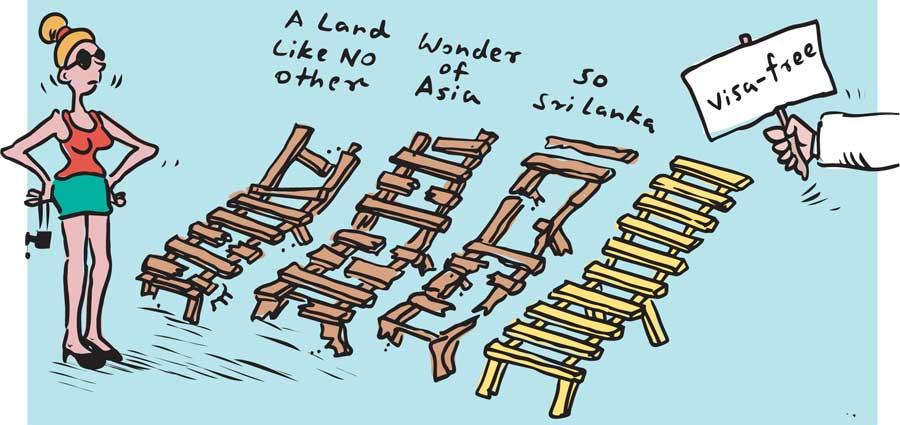27 Oct 2023 - {{hitsCtrl.values.hits}}

Many are of the opinion that profits can be made from tourism in this pearl of an island even if businesses related to this industry are badly run. This is a myth according to experts in the tourism industry. What worries tourism industry experts is that without a comprehensive tourism policy initiated by the Government of Sri Lanka (GoSL), this nation cannot have a sustainable industry for hotels and tourism.
Most hotels in Sri Lanka are struggling or closed down. The few stubborn ones that are refusing to bow out are perhaps run because of ‘prestige’ or the social capital gained by making the statement ‘I own a hotel in Southern Sri Lanka’.
One main issue that small hotels face here on this island is the inability to serve soft undistilled drinks like beer and wines sans permits when catering to the interests of foreign tourists.
And both these drinks are criminally expensive here given the import restrictions on several important items that are sought after in the hospitality industry.
The GoSL just the other day announced that it has lifted the requirement of visas for tourists arriving from several selected countries. According to the Tourism Minister, tourists from countries like Russia, India, China, Thailand and Indonesia along with two other nations can have visa-free entrance to the island now.
This is a pilot project carried out by the government and will be effective till March 31, 2024.
That’s where the problem lies in this country. This policy might continue; it might not. A peep into the history of this country reveals to us that most pilot projects and important policies have never stood the test of time. The devil that destroys all that’s good in this country comes in the form of a change of government. There may be two things or institutes that were constructed with a ‘political will’ which didn’t get rooted out of existence despite the change of government. They are the Lotus Tower-better known as Nelum Kuluna- and the Nelum Pokuna Theatre; both ringing the name Mahinda Rajapaksa in the people’s minds when their gaze catches these gigantic structures which were built with the taxpayers’ monies.
The other problem is the involvement of lawmakers in the most vital business in Sri Lanka. We just saw the mess that was created in the health sector because so many drugs that were not so essential were flooding the market quite recently. The talk of the town during that time was that either lawmakers or their closest relations were operating most of the pharmaceutical import Companies in this island and they were engaging in this business to suit their whims and fancies with profit-making being the sole criterion of running their businesses.
The shortage of essential drugs here on the island negatively influenced the thought patterns of foreigners, who were back then planning a trip to Sri Lanka. This situation has somewhat eased and private hospitals have essential drugs now, at least to some extent.
Travel advisories issued by other countries about Sri Lanka are positive now and this paradise island is again back on the must-visit list of tourist destinations. Most importantly Sri Lanka is labeled as a ‘safe country’ to travel to. Adding to the positives about Sri Lanka the Chinese Government has listed this island among 19 other nations which this Asian Super Power has named as must travel to countries.
As the islanders use 2023 to recover from the turmoil the nation experienced last year (2022) the Government is working on a lifeline it gave tourism in the country.
The GoSL announced through its Ministry of Tourism a four-year strategic plan to lift the hospitality industry. This initiative began in 2022 and it aims to identify issues and opportunities and set an agenda for the recovery and resilience of the country’s tourism sector.
The initiative also includes plans to invite more of the private sector’s dynamism into tourism and champion a vision of a more inclusive, sustainable and resilient model of tourism in the country.
26 Dec 2024 56 minute ago
26 Dec 2024 1 hours ago
26 Dec 2024 2 hours ago
26 Dec 2024 2 hours ago
26 Dec 2024 4 hours ago